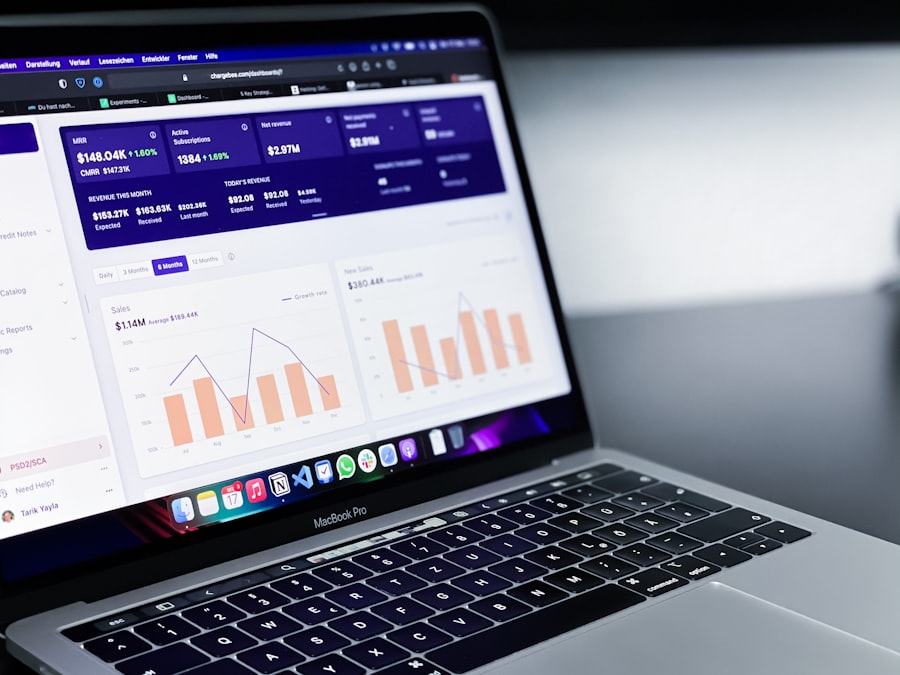In the realm of sport and event marketing, a profound understanding of the target audience is paramount. This involves not only identifying who the audience is but also delving into their preferences, behaviors, and motivations. For instance, a sports team may have a diverse fan base that includes families, young adults, and corporate sponsors.
Each segment has distinct interests and expectations. Families might prioritize family-friendly activities and affordable ticket prices, while young adults may seek social experiences and entertainment value. By segmenting the audience, marketers can tailor their strategies to resonate with each group effectively.
Moreover, understanding the target audience extends beyond demographics; it encompasses psychographics as well. This includes values, lifestyles, and emotional connections to the sport or event. For example, a passionate soccer fan may not only attend games for the sport itself but also for the sense of community and belonging it fosters.
Marketers can leverage this emotional connection by creating campaigns that evoke nostalgia or highlight shared experiences among fans. Engaging with the audience through surveys, focus groups, and social media interactions can provide invaluable insights into their preferences, allowing marketers to craft messages that truly resonate.
Key Takeaways
- Know your audience deeply to tailor marketing efforts effectively.
- Use social media and influencers to boost engagement and reach.
- Design unique experiences that leave lasting impressions.
- Employ data analytics to refine strategies and improve outcomes.
- Partner with corporations and adapt branding to maximize impact.
Leveraging Social Media and Influencer Marketing
Social media has revolutionized the way brands engage with their audiences, particularly in the sports and events sector. Platforms like Instagram, Twitter, and TikTok offer unique opportunities for real-time interaction and content sharing. Marketers can utilize these platforms to create buzz around events, share behind-the-scenes content, and engage fans in conversations.
For instance, during major sporting events like the Super Bowl or the Olympics, brands often create tailored content that aligns with the event’s themes, encouraging fans to share their experiences online. This not only amplifies brand visibility but also fosters a sense of community among fans. Influencer marketing has emerged as a powerful tool within this landscape.
Collaborating with influencers who have a genuine connection to the sport or event can enhance credibility and reach. For example, a popular athlete or sports commentator can share their experiences or promote an upcoming event to their followers, effectively bridging the gap between brands and potential attendees. The authenticity of influencer endorsements can significantly impact consumer behavior, as fans are more likely to trust recommendations from individuals they admire.
By strategically selecting influencers whose values align with the brand, marketers can create compelling narratives that resonate with their target audience.
Creating Memorable Experiences

In an era where consumers are inundated with choices, creating memorable experiences is essential for standing out in the competitive landscape of sports and events. This goes beyond simply providing a product or service; it involves crafting an immersive experience that leaves a lasting impression on attendees. For instance, consider a music festival that incorporates interactive installations, art displays, and unique food offerings alongside performances.
Such elements not only enhance the overall experience but also encourage attendees to share their moments on social media, further amplifying the event’s reach. Moreover, personalization plays a crucial role in creating memorable experiences. By leveraging technology such as mobile apps or wearable devices, event organizers can offer tailored experiences based on individual preferences.
For example, a sports event could provide personalized content such as player statistics or exclusive interviews based on attendees’ interests. This level of customization fosters a deeper connection between the audience and the event, making them feel valued and engaged. Ultimately, memorable experiences lead to increased brand loyalty and word-of-mouth promotion, as attendees are more likely to return for future events and recommend them to others.
Utilizing Data and Analytics for Strategy Development
| Metric | Description | Importance | Example Value | Impact on Strategy |
|---|---|---|---|---|
| Data Accuracy | Percentage of data entries free from errors | High | 98% | Ensures reliable insights for decision-making |
| Data Completeness | Extent to which all required data is available | High | 95% | Supports comprehensive analysis and reduces bias |
| Data Timeliness | Speed at which data is collected and made available | Medium | 24 hours | Enables up-to-date strategy adjustments |
| Analytics Adoption Rate | Percentage of teams using analytics tools | High | 75% | Drives data-driven culture and informed strategies |
| Predictive Model Accuracy | Accuracy of forecasting models used in strategy | High | 85% | Improves future scenario planning and risk management |
| Customer Insights Utilization | Degree to which customer data informs strategy | High | 80% | Enhances customer-centric strategy development |
| Return on Analytics Investment (ROAI) | Benefit gained from analytics relative to cost | Medium | 150% | Measures effectiveness of analytics initiatives |
In today’s data-driven world, leveraging analytics is essential for developing effective marketing strategies in sports and events. By collecting and analyzing data from various sources—such as ticket sales, social media engagement, and attendee feedback—marketers can gain valuable insights into consumer behavior and preferences. For instance, analyzing ticket sales data can reveal trends in attendance patterns, helping organizers identify peak times for promotions or adjust pricing strategies accordingly.
Furthermore, data analytics can inform targeted marketing efforts. By segmenting audiences based on their behaviors and preferences, marketers can create personalized campaigns that resonate with specific groups. For example, if data indicates that a significant portion of attendees are millennials interested in sustainability, event organizers could highlight eco-friendly initiatives in their marketing materials.
Additionally, real-time analytics during an event can provide insights into attendee engagement levels, allowing organizers to make on-the-fly adjustments to enhance the experience. This agile approach ensures that marketing strategies remain relevant and effective in an ever-evolving landscape.
Collaborating with Corporate Partnerships
Corporate partnerships play a pivotal role in enhancing the reach and impact of sports and event marketing initiatives. Collaborating with brands that align with the values and interests of the target audience can create mutually beneficial relationships that amplify visibility and resources. For instance, a major sporting event may partner with a beverage company to provide exclusive sponsorship opportunities.
This partnership not only enhances the event’s offerings but also allows the brand to connect with a captive audience in a meaningful way. Moreover, corporate partnerships can extend beyond traditional sponsorships to include co-branded campaigns or joint initiatives that engage fans on multiple levels. For example, a sports team might collaborate with a technology company to develop an app that enhances fan engagement during games through interactive features such as live polls or augmented reality experiences.
Such collaborations not only elevate the fan experience but also position both brands as innovative leaders within their respective industries. By leveraging each other’s strengths and resources, organizations can create impactful marketing strategies that resonate with audiences.
Implementing Effective Branding and Sponsorship Strategies

Branding is at the heart of successful sports and event marketing strategies. A strong brand identity helps differentiate an organization from its competitors while fostering loyalty among fans. Effective branding encompasses visual elements such as logos and color schemes as well as messaging that reflects the organization’s values and mission.
For instance, a sports team may adopt a branding strategy that emphasizes community involvement and inclusivity, resonating with fans who value these principles. Sponsorship strategies are equally crucial in enhancing brand visibility and credibility within the sports landscape. By aligning with reputable sponsors whose values align with those of the organization, marketers can create authentic partnerships that resonate with audiences.
For example, a marathon event might partner with a health-focused brand to promote wellness initiatives while simultaneously enhancing its own brand image. Additionally, sponsorships can provide financial support for events while offering sponsors access to targeted audiences through promotional opportunities such as branded merchandise or exclusive experiences for attendees.
Measuring and Evaluating Impact
To ensure the effectiveness of marketing strategies in sports and events, measuring and evaluating impact is essential. This involves establishing key performance indicators (KPIs) that align with organizational goals and objectives. For instance, KPIs may include metrics such as ticket sales growth, social media engagement rates, or attendee satisfaction scores.
By tracking these metrics over time, marketers can assess the success of their initiatives and identify areas for improvement. Moreover, qualitative feedback from attendees can provide valuable insights into their experiences and perceptions of the event or brand. Surveys conducted post-event can capture attendee sentiments regarding various aspects such as organization, entertainment value, and overall satisfaction.
Analyzing this feedback allows marketers to make data-informed decisions for future events while also demonstrating responsiveness to audience needs. Ultimately, a robust evaluation process not only enhances accountability but also fosters continuous improvement in marketing strategies.
Adapting to Emerging Trends in Sport and Event Marketing
The landscape of sports and event marketing is constantly evolving due to emerging trends driven by technological advancements and changing consumer behaviors. Staying ahead of these trends is crucial for marketers seeking to maintain relevance in a competitive environment. For instance, the rise of virtual reality (VR) technology has opened new avenues for fan engagement by offering immersive experiences that transcend traditional viewing methods.
Events can leverage VR to provide fans with unique perspectives or behind-the-scenes access that enhances their connection to the sport. Additionally, sustainability has become an increasingly important consideration in event marketing strategies. As consumers become more environmentally conscious, organizations must adapt by implementing eco-friendly practices within their events—such as reducing waste or promoting sustainable transportation options.
By aligning marketing efforts with these emerging trends, organizations not only demonstrate social responsibility but also attract audiences who prioritize sustainability in their purchasing decisions. In conclusion, navigating the complexities of sports and event marketing requires a multifaceted approach that encompasses understanding target audiences, leveraging social media and influencer partnerships, creating memorable experiences, utilizing data analytics for strategy development, collaborating with corporate partners, implementing effective branding strategies, measuring impact rigorously, and adapting to emerging trends in the industry. Each element plays a critical role in shaping successful marketing initiatives that resonate with fans while driving organizational growth.



